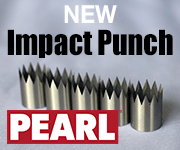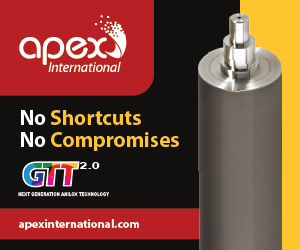Innovating for Circularity: How New Sustainability Initiatives Are Shaping the Future of Labeling
- Published: June 30, 2025

By Erin Bernhardt, VP of Graphic & Label Materials, Beontag
In the face of growing regulatory, environmental and consumer pressures, the packaging and labeling industry continues to advance technologies and solutions that help to support a circular economy. This is clearly seen in the adoption of wash-off adhesives for PET packaging, the introduction of phenol-free direct thermal papers, and the expanding role of the Association of Plastic Recyclers (APR) in validating design for recyclability. These advances signal a critical step forward in harmonizing material performance with sustainability, while also reducing the amount of plastic waste and hazardous substances entering the supply chain.
The Role of Wash-Off Adhesives in PET Recycling
Polyethylene terephthalate (PET) is one of the most widely used packaging plastics due to its strength, transparency and recyclability. However, labels applied to PET containers often impede recyclability. Traditional pressure-sensitive adhesives can leave residue that discolors the material or clogs recycling systems, degrading the quality of recycled PET, and discouraging its use in high-value applications such as bottle-to-bottle reuse. At an industry-wide level, this was an issue that needed addressing.
Wash-off adhesives tackle this challenge head-on. Engineered specifically for PET containers, these adhesives enable labels to detach cleanly during the caustic wash step of the recycling process, leaving behind a contaminant-free PET stream. The result is a cleaner, more efficient recycling process that yields higher-quality post-consumer recycled content and increases the viability of closed-loop recycling systems.
Recent innovations have pushed performance boundaries even further. For example, some wash-off adhesives now perform reliably in extreme cold-chain conditions down to -18°F (-27°C), while still separating cleanly during recycling. This is particularly valuable for sectors like food and beverage, and health and beauty, where packaging may encounter varied storage environments. Additionally, some solutions require no pre-treatment of the substrate, simplifying operations for converters and reducing the total environmental footprint of the label production process.
Eliminating Phenols from Thermal Labels
In parallel to developments in recycling-compatible adhesives, attention has also turned to improving material safety in thermal labeling. One of the most pressing concerns in this area has been the presence of bisphenol chemicals – namely Bisphenol A (BPA) and Bisphenol S (BPS) - in direct thermal papers. These compounds have raised significant health and regulatory concerns due to their potential endocrine-disrupting effects.
To address this issue, new phenol-free direct thermal papers have been developed as safer alternatives that maintain the same performance characteristics as traditional phenol-based materials. These alternatives support compliance with evolving chemical safety regulations, including California’s Proposition 65 and Washington State’s Safer Products for Washington Act.
By eliminating phenols from label facestocks, the industry is not only improving consumer safety but also supporting the broader shift toward more responsible material choices. These innovations reflect growing momentum and commitment to extend sustainability beyond recyclability alone to include human health and chemical compliance.
Third-Party Validation for Recyclability
The technical performance of these innovations is only part of the sustainability equation—which everyone in Beontag is keen to solve. Equally important is the ability to validate and standardize the definition and performance requirements of calling something “recyclable.” APR Design Recognition is administered by the Association of Plastic Recyclers and formally assesses whether a packaging component such as a label, adhesive or closure, meets stringent design-for-recyclability criteria. The recognition process confirms whether the component is compatible with the U.S. PET recycling stream, offering critical third-party validation that enhances trust across the packaging value chain.
This is especially meaningful in North America, where recycling standards can vary widely by jurisdiction and where packaging claims are coming under increasing scrutiny by regulators and advocacy groups.
Industry Alignment and Competitive Landscape
The move toward recognized wash-off adhesives has seen growing momentum in recent years, with multiple suppliers launching solutions designed to meet APR criteria. These include products compatible with a range of packaging types including PET, HDPE, PP and glass. However, what distinguishes the latest generation of PET-focused wash-off adhesives is their integration of sustainability, durability and process efficiency.
Some adhesives, for instance, offer the rare combination of cold-chain compatibility and no need for substrate pre-treatment. This enables packaging converters to simplify production workflows without compromising performance or recyclability. For many, this reduction in operational complexity is just as valuable as sustainability gains.
Toward Scalable Circularity
Advances like wash-off adhesives, phenol-free papers, and third-party recognition standards are not just incremental improvements; they are foundational enablers of a more circular, safer packaging economy. By allowing high-purity PET to be reclaimed and reused across multiple cycles, and by removing potentially harmful substances from facestocks, these technologies help decouple packaging from virgin resource use and chemical risk.
Still, broader adoption will require continued collaboration from across the value chain. From resin producers and adhesive formulators to label converters, brand owners, and recyclers, alignment around practical and verifiable design criteria is critical. Recognition programs provide the common language needed to drive that alignment and to ensure that innovation translates into measurable environmental benefits.
As sustainability targets become more ambitious and regulatory pressures more intense, the industry will need to scale up solutions that are not only technically sound but operationally viable. Wash-off adhesives and phenol-free facestocks represent precisely that kind of scalable innovation – technologies that meet today’s needs without compromising tomorrow’s possibilities.
Erin Bernhardt is VP of Graphic & Label Materials at Beontag, a global provider of pressure-sensitive adhesives and IoT solutions operating in more than 20 countries. Learn more at www.beontag.com.












